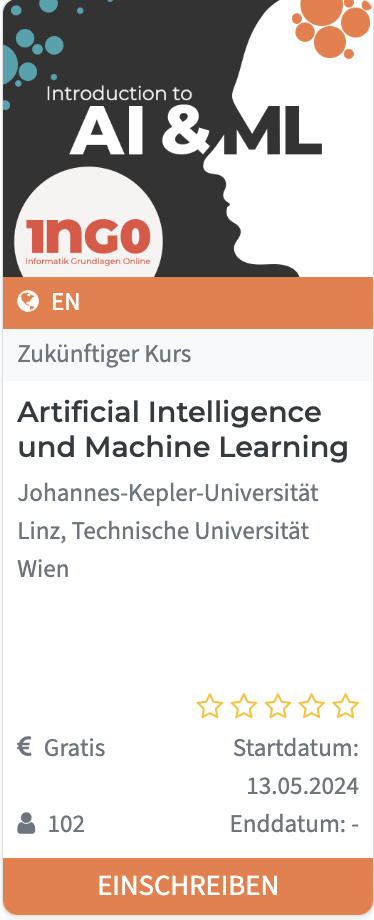Die Universität Linz zusammen mit der Technischen Universität Wien hat einen neuen MOOC zu „Artificial Intelligence und Machine Learning“ gestartet im Rahmen Ihrer MOOC-Serie INGO. Danke für die tollen Inhalte für alle Informatik-Begeisterten:
In diesem Kurs werden wir uns mit den Begriffen der Künstlichen Intelligenz und Machine Learning auseinandersetzen und etwas tiefer in die Materie einsteigen. Wir beginnen mit einer Einführung in die Thematik und erläutern, was sich hinter den einzelnen Begriffen Artificial Intelligence, Machine Learning und Deep Learning versteckt, und worin sie sich unterscheiden. Du wirst alle notwendigen Grundlagen im Bereich Datenverarbeitung, Machine Learning und Evaluierung lernen. Außerdem erläutern wir dir eine Liste an „intelligenten“ Algorithmen für verschiedene Problemstellungen.
Im Zuge dieses Kurses wirst du deine eigenen Machine Learning Projekte umsetzen, beginnend bei der Datenanalyse und -verarbeitung bis hin zur Evaluierung deines eigenen Machine Learning Modells.
Bist du immer noch interessiert oder denkst dir „warum eigentlich nicht“? Dann starte den Kurs und los geht’s!

